Cross-posted from AgriLinks
Since 2019, PepsiCo and USAID have been working together to empower female farmers in West Bengal where they have PepsiCo local staff and agronomists providing trainings to women in the potato supply chain, equipping them to take on the role of community agronomists, and supporting women’s self-help groups access land leases to grow PepsiCo potatoes. As a result, women in the PepsiCo potato supply chain are producing higher quality and quantity of potatoes, expressing feelings of increased empowerment and finding support from their families and communities. Given their success in West Bengal, USAID and PepsiCo have expanded their work in India and to three more countries — Pakistan, Vietnam and Colombia — through a new Global Development Alliance funded through USAID’s women’s economic empowerment funding.
Sarah Lowery, economist and public-private finance specialist in USAID’s Land and Resource Governance Division, and Corinne Hart, senior gender advisor for energy, environment and climate at USAID’s Gender Equality and Women’s Empowerment Hub, share how PepsiCo is helping USAID make the business case for women’s empowerment.
Why did USAID partner with PepsiCo?
Sarah: The partnership began as a conversation between PepsiCo and USAID about the impediments of insecure land rights to achieving PepsiCo’s sustainability goals, and it developed into a collaboration to strengthen land rights and empower women in PepsiCo’s supply chains. We began working through our existing Integrated Land and Resource Governance (ILRG) activity in West Bengal to understand the myriad roles women already play in potato production, provide them with support, training and access to land, and shift harmful gender norms that limit their opportunities.
Corinne: Following the successes with ILRG, USAID hosted a cocreation workshop with PepsiCo, where we discussed strategies to make the case that women’s empowerment and gender equality in their agriculture supply chains can be a core part of their business; critical to advancing their sustainable agriculture goals and key performance indicators (KPIs). This partnership also has the overall goal of making the business case for women’s empowerment in the food and beverage industry as a whole. The International Center for Research on Women (ICRW) is a key partner providing a robust, evidence-based, gender-sensitive approach to the activity. We’re looking at shifting power dynamics, harmful gender norms, supporting women in gaining access to productive assets like land and also increasing their personal empowerment. Our strategic approach includes involving men to increase their understanding and enthusiasm about the benefits that accrue to the family when women in their households have a more recognized relationship with PepsiCo.
What are some of the results for women that you’ve seen?
Corinne: The data shows that women who are participating in this activity report that they feel seen and respected as farmers for the first time. We are tracking data on women participants’ perceptions of their own self-worth and how others in the community see them. These qualitative metrics are critical to understanding women’s empowerment, alongside quantitative indicators such as income earned and access to training and skills building. Measuring changes in perceptions of self-worth and personal empowerment are incredibly important components of women’s economic empowerment.
Sarah: Women are seeing their husbands become more supportive of them and their role as farmers. For example, we are working to create new roles for women as community agronomists. Initially, maybe their husbands or families did not believe they could or should do the job, but they have transformed these perceptions either by the influence of gender equality champions in the community, or seeing their wives be successful in these roles. We hear stories where women say “my husband didn’t think I could do it, and now he is taking my agronomic advice.” Women have persevered and continued to advocate for themselves and have become sources of information both for women in the community and for men as well. We’ve seen some of the biggest skeptics of our work become the most adamant champions.
Have there been any surprising results of this partnership?
Sarah: During this partnership, PepsiCo announced its 2030 Goal to Scale Regenerative Farming Practices Across 7 Million Acres, by “improving the livelihoods of more than 250,000 people in its agricultural supply chain and communities, including economically empowering women.” Our USAID-PepsiCo partnership has played a pivotal role in demonstrating that empowering women is possible and is good for business. And to measure progress against its livelihoods and other goals, PepsiCo is developing its Livelihoods Measurement Framework. Critically, the framework includes measurement of gender equality. This is really important because if you’re not being asked to measure your progress on something, you may not think about it.
Corinne: PepsiCo is building its capacity at all levels to understand and see their business activities through a gender lens. This activity and its initial successes are attracting interest from other companies, as well as other local PepsiCo teams. Other industry actors are now reaching out to see how we can partner and share our approaches. PepsiCo has already been showcasing what they are doing and working to get other companies in the sustainable agriculture industry to think about how women’s empowerment and gender equality is linked to their ability to achieve their sustainable agriculture goals.
Sarah: Another unexpected impact we have found is that some communities are associating the gender equality interventions — like assisting women’s groups access land to lease, providing agronomic trainings for women, installing a local community agronomist in the area, providing gender norms workshops, etc. — with PepsiCo in such a positive way that they have said, “We want to be a PepsiCo village.” Due to this initial success, PepsiCo is now seeing women’s empowerment as a part of a broader farmer loyalty strategy.
What are some of the lessons learned in working with the private sector?
Corinne: One of the big lessons has been that stakeholders across the company are motivated by different things and come with varying levels of interest. The local PepsiCo teams sometimes have additional, locally-specific priorities and pressures than the PepsiCo global sustainable agriculture team, and local company leaders have a huge amount of pressure and demand on resources and meeting their business targets. We have learned to tailor our messaging to different stakeholders across the company so that we can demonstrate the value-add of these activities to them, as well as making sure we are really clear about what would be expected of them.
Sarah: Particularly for the local business leaders who are focused on achieving their business targets, addressing gender inequality seems like an extra responsibility, at least at first. One of the interesting things is that as local teams are starting to see the value of women’s empowerment, we’re finding that they have begun taking on their own women’s empowerment initiatives. For example, at least one aggregator has begun working with a group of women to help them get access to land.
What are some important inclusive approaches that you’ve woven into the partnership?
Corinne: One important lesson we have learned has been to not be afraid to advocate for a gender-transformative approach. We want women to have access to land and to be farmers in the supply chain; we want men to recognize women as farmers and for women to identify as farmers. PepsiCo has been very receptive to testing a transformative approach. Additionally, preventing and responding to gender-based violence [GBV] is a central tenet of this activity. Some of the GBV interventions in West Bengal have included partnering with local organizations that provide survivor-centric support. [The United Nations defines a survivor-centered approach as one which seeks to empower the survivor by prioritizing their rights, needs and wishes.] We trained the local PepsiCo teams on what to do when they encounter GBV and gave them concrete steps to take.
Sarah: PepsiCo was very responsive to the inclusion of GBV prevention and response initiatives. As this was the first time focusing on gender equality and women’s empowerment as a business performance driver, some of our partners at PepsiCo were surprised that we’d have to be careful of any potential backlash against women from a program that is focused on women’s empowerment. As we’ve developed the partnership, however, PepsiCo has been very attentive and at times has worried we weren’t doing enough on GBV. Seeing PepsiCo global and local staff take on the responsibility to think about and program for GBV has been inspiring.
What makes a partnership with a private sector actor successful?
Sarah: Keeping clear lines of communication open to be able to discuss any issues transparently and collaboratively, particularly around any tension points that arise, has been really important. That has also been very effective for learning.
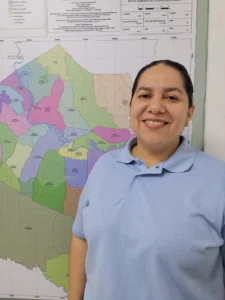
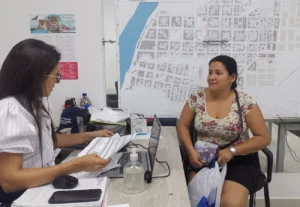
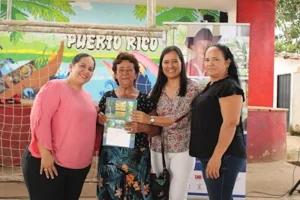
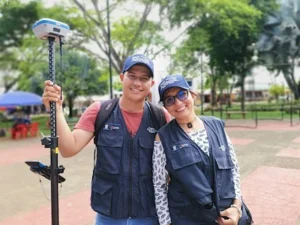
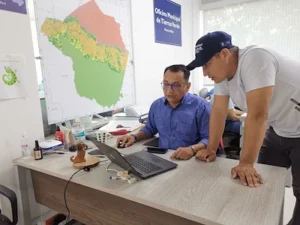
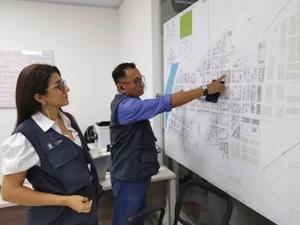


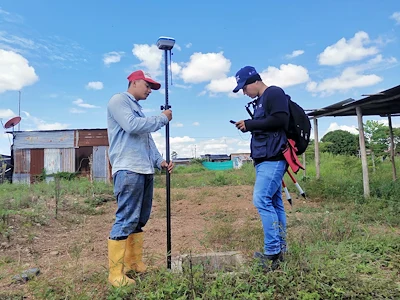
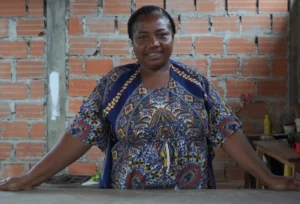
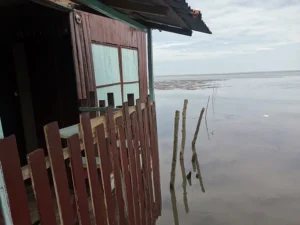
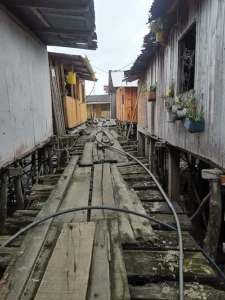
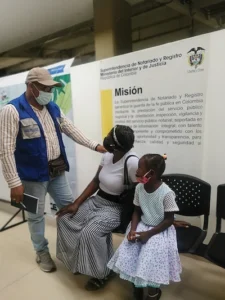
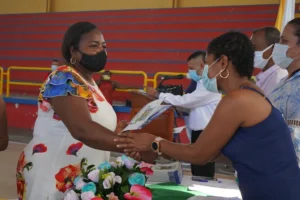 Secure land rights for women are a crucial part of a gender responsive strategy to strengthen land tenure, and can have an outstanding impact on promoting gender equality and protecting one’s patrimony. When women have access to land and property, studies show they are more likely to earn higher incomes, enjoy increased decision-making power, and feel more protected in marital conflicts.
Secure land rights for women are a crucial part of a gender responsive strategy to strengthen land tenure, and can have an outstanding impact on promoting gender equality and protecting one’s patrimony. When women have access to land and property, studies show they are more likely to earn higher incomes, enjoy increased decision-making power, and feel more protected in marital conflicts.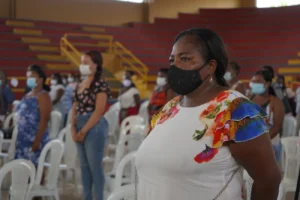 I invite them from the bottom of my heart and soul to be strong women that we are and to go to the Tumaco Municipal Land Office. That the women who have been through these horrible situations, always feeling crushed, need to know that we too can receive many benefits. Even when the men are the ones who work, we also have rights because we are also part of the home.
I invite them from the bottom of my heart and soul to be strong women that we are and to go to the Tumaco Municipal Land Office. That the women who have been through these horrible situations, always feeling crushed, need to know that we too can receive many benefits. Even when the men are the ones who work, we also have rights because we are also part of the home.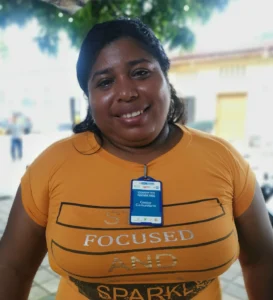 Since 2020, with support from the Government of Colombia, the Land for Prosperity Activity is leading a massive land formalization campaign in the municipality of Cáceres, in the Bajo Cauca region. Due to the presence of armed groups, illicit crops, land mines, and artisanal gold mining, the initiative depends on community mobilizers for several important steps of the property formalization process. In this interview, Ana Cristina Marchena, a community leader from Guarumo, Cáceres, talks about her role and the value community mobilizers add.
Since 2020, with support from the Government of Colombia, the Land for Prosperity Activity is leading a massive land formalization campaign in the municipality of Cáceres, in the Bajo Cauca region. Due to the presence of armed groups, illicit crops, land mines, and artisanal gold mining, the initiative depends on community mobilizers for several important steps of the property formalization process. In this interview, Ana Cristina Marchena, a community leader from Guarumo, Cáceres, talks about her role and the value community mobilizers add.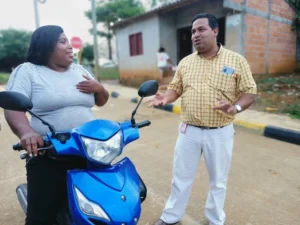
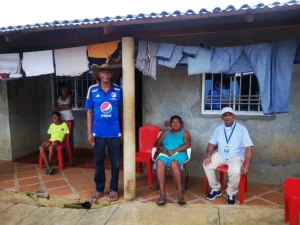
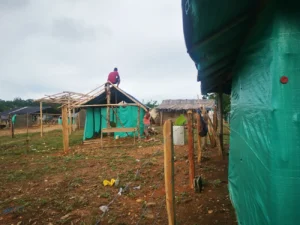
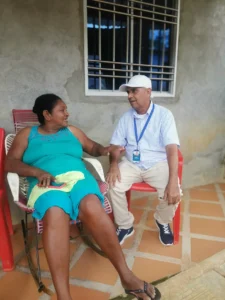
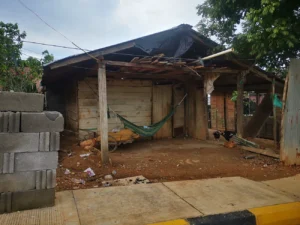
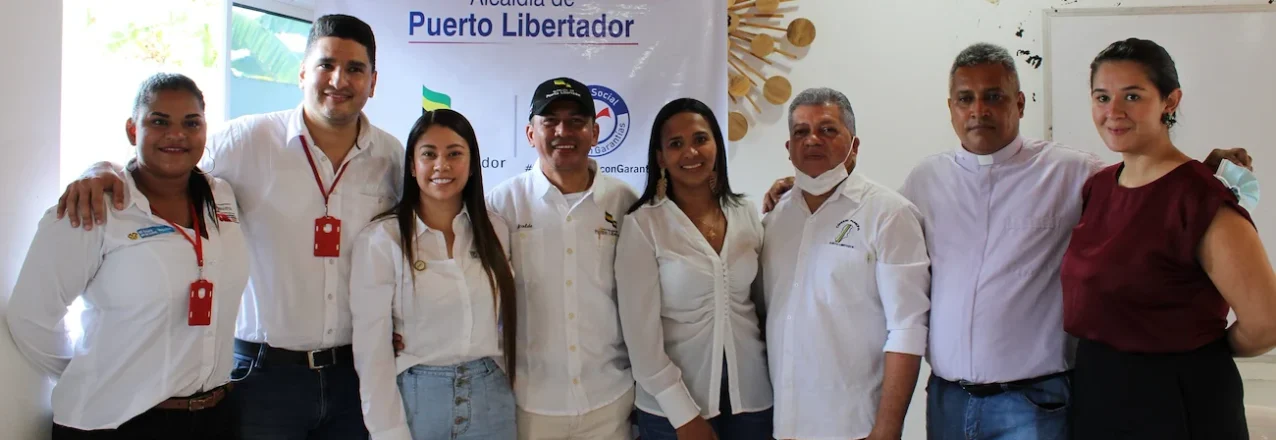
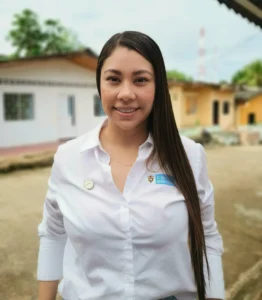 How can Municipal Land Offices support Puerto Libertador?
How can Municipal Land Offices support Puerto Libertador?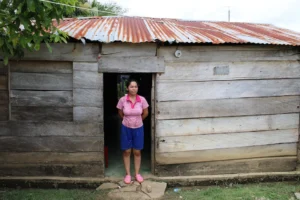
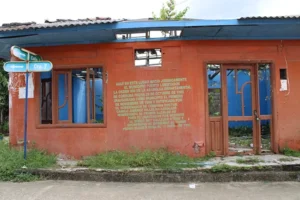
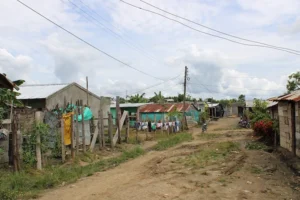
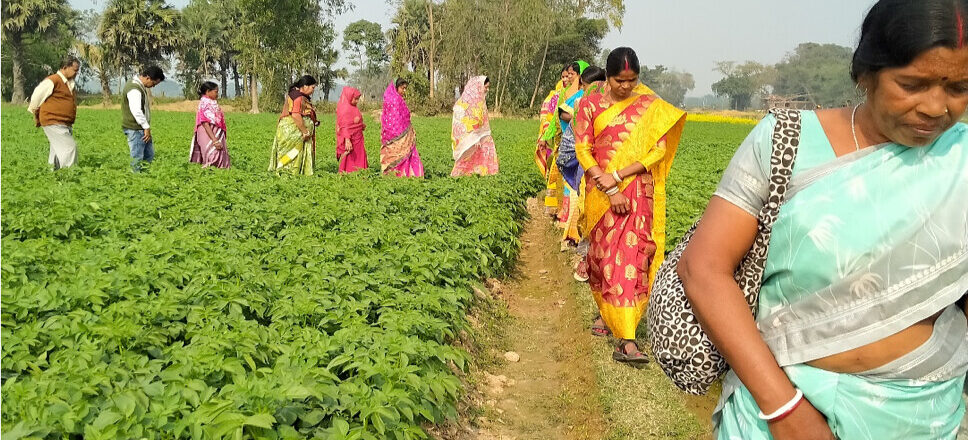
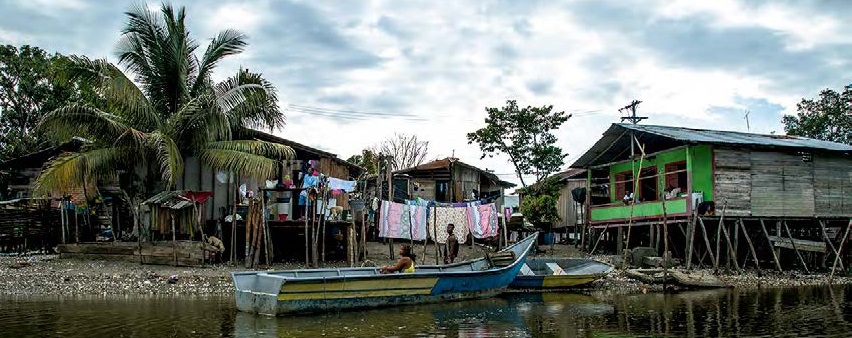
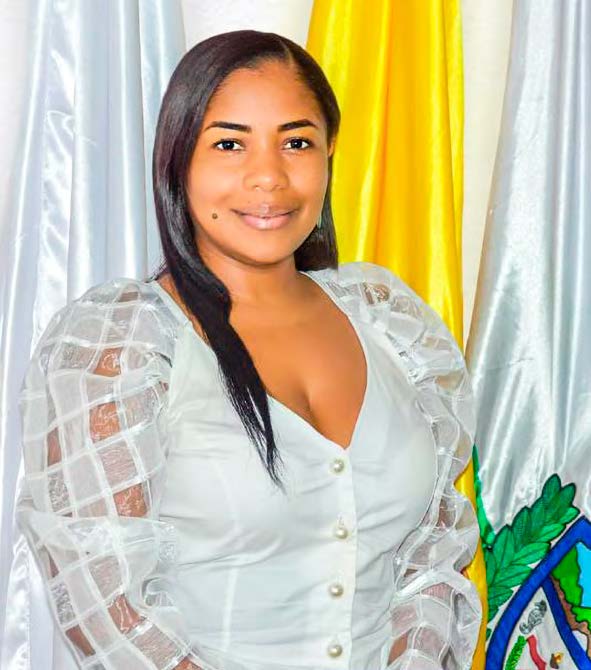 Is informality of public lands an obstacle to mobilizing resources that can be invested in infrastructure for public services, such as, health centers?
Is informality of public lands an obstacle to mobilizing resources that can be invested in infrastructure for public services, such as, health centers?